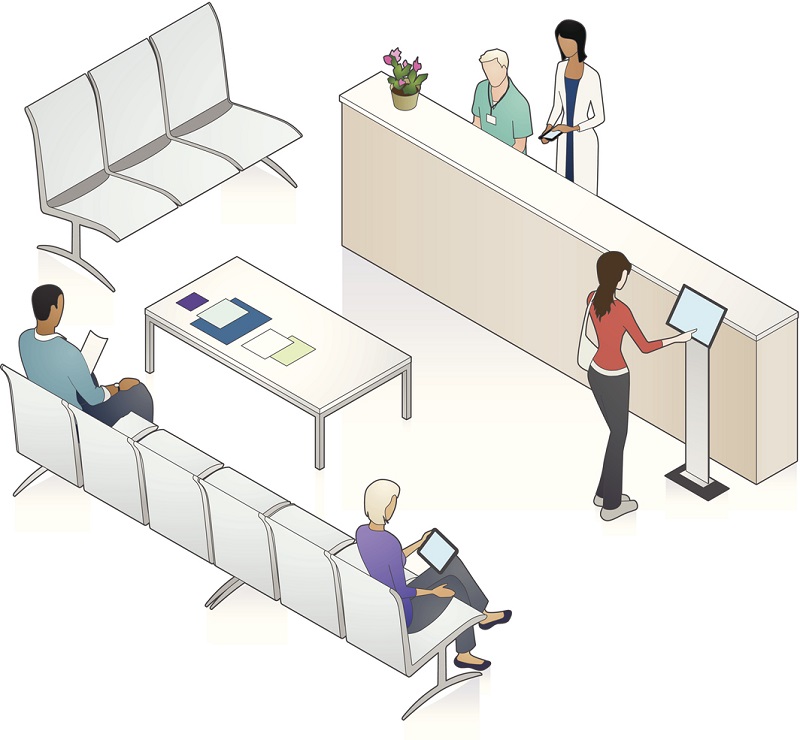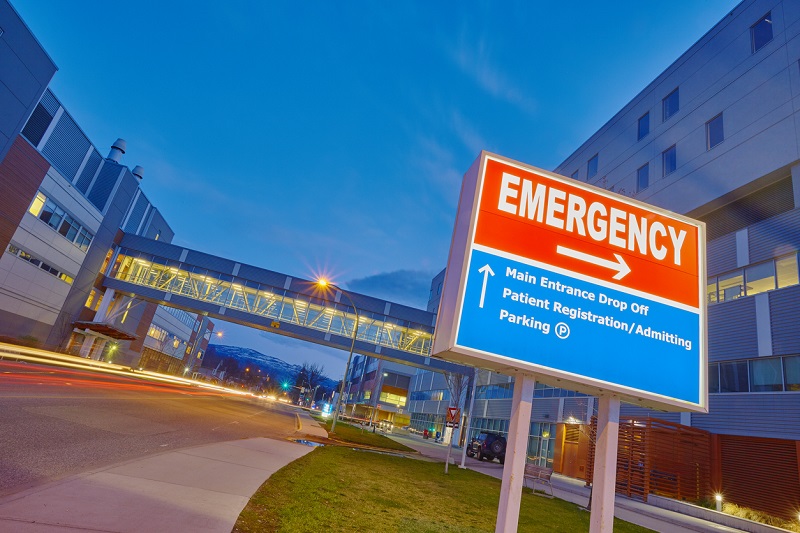A top priority for healthcare providers is how to improve patient care. Today, hospitals are overcrowded and their staff is often overworked, creating an unpleasant atmosphere for both patients as well as staff. One solution to this is automation -- using digital kiosks and signage to handle administrative processes. Today we will be discussing the benefits of patient check-in kiosks and why they should be a consideration in any related healthcare environment.
The role digital kiosks and digital signage play in hospitals
Digital kiosks and digital signage play an important role in hospitals, providing useful information in an easy-to-understand format. Since hospital staff members are generally busy with multiple patient demands, it is important to have pertinent information displayed where it can be easily accessed by patients without the need to involve staff.
Digital kiosks and signage can provide information including directories and maps, as well as services such as check-in and bill payments, all without the need for staff assistance. By displaying this information around the hospital in key locations, it helps lighten the workload of staff and while helping visitors and patients get where they need to be with as little stress and frustration as possible.

Why are patient check-in kiosks important?
Patient check-in kiosks are important primarily because they allow hospital staff to attend to the care of patients instead of administrative tasks. They free up more time for front-line employees via automation. When kiosks are available, patients are able to complete basic processes so that nurses or doctors can care for those patients who are most in need without wasting time.
Although less personal than many might be accustomed to, patient kiosks are quickly becoming the norm for handling the high volume of patients and visitors at most hospitals. With check-in kiosks now more readily available, hospitals are able to process a greater number of patients than a hospital without self-service options.
What are the benefits of patient check-in kiosks?
Patient check-in kiosks are becoming more common in hospitals for a variety of reasons. Although they may seem daunting at first, these medical kiosks are remarkably easy to use and help to provide a better experience for patients and the hospital staff. Some benefits include:
- Reduced wait times and shorter lines
- A decreased workload for hospital staff, allowing more time for patients
- Modern, technologically advanced, and aesthetically pleasing
- Greater patient control, including access to information, allowing hospitals to provide better transparency and care
- Less congestion throughout hospital buildings
- Simplified patient payment collection

How will self-service transform healthcare in the future?
Self-service is greatly transforming the landscape for healthcare. With the aging of the Baby Boomer population, health care services are seeing a rapid rise in patients that no amount of staff can handle given current resources. Automation helps unburden frontline hospital staff, giving hospitals the tools necessary to make hospital visits less simpler, easier, and less stressful. Ultimately, self-service kiosks are the next logical step in improving healthcare for all.


